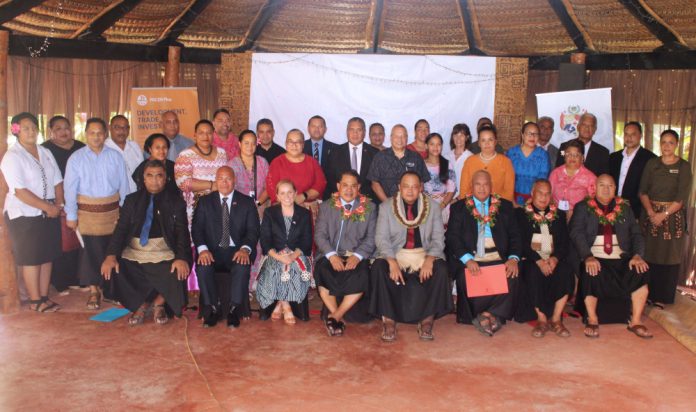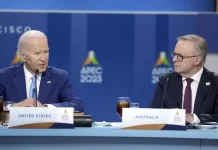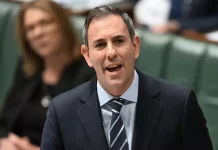The Tongan Prime Minister Siaosi Sovaleni has launched the Tonga Labour Mobility Supply Management Strategy (TLMSMS), funded by the Pacific Agreement on Closer Economic Relations Plus (PACER Plus).
The strategy aims to develop a well-managed, coordinated labour mobility supply management programme that is equitable, inclusive, can broaden the range of appropriate and aligned skills for both domestic and international supply.
The Prime Minister emphasised the importance of labour mobility as a key component of Tonga’s long-term development strategy, saying:”Labour mobility provides an important, viable development opportunity for Tonga to generate positive impacts for our socio-economic development. It is therefore essential to embed labour mobility as a key component of Tonga’s long-term development strategy.”
Tonga has been participating in the Australian and New Zealand labour mobility schemes since their inception in 2007 for New Zealand’s Recognised Seasonal Employer (RSE) scheme, 2012 for Australia’s Seasonal Worker Programme (SWP), and 2018 for the Pacific Labour Scheme (PLS). Tonga has consistently been one of the three main Pacific labour supply countries. Tongan men have predominantly been recruited for seasonal work in Australia and New Zealand, with Tongan women accounting for around 13 per cent of SWP and RSE visa grants in recent years.
The TLMSMS aims to address the labour mobility supply challenges faced by Tonga as demand for Pacific labour is expected to increase significantly over the next five years. The Pacific Australia Labour Mobility (PALM) scheme is expected to increase from its present 35,000 workers to almost 50,000 by 2025-26, while New Zealand’s labour mobility programmes are expanding to new sectors including construction and infrastructure, meat and seafood processing, the care workforce, and tourism and hospitality.
Head of PACER Plus Implementation Unit, Roy Lagolago, said: “Labour mobility is a potential development vehicle for Pacific labour sending countries such as Tonga but optimising these benefits requires conducive policies and strategies to balance the costs and benefits for the country. The Tonga Labour Mobility Supply Management Strategy has been developed through evidence-based approaches to help increase Tonga’s development gains from labour mobility and contribute to the country’s sustainable economic development.”
The TLMSMS was jointly conducted by labour mobility experts and officials from Tonga, New Zealand, and Australia working collectively to ensure an evidence-based approach to the findings. The TLMSMS has identified a range of skill shortages and labour shortages across the domestic market, particularly for medium to high-skilled professionals, trades, construction areas, and specific semi-skilled occupations.
The Tonga 2021 Census of Population and Housing identified over 25 percent of Tongan households have remittances from labour mobility workers as their main source of income. Temporary labour mobility remittances from Tongans working on SWP and RSE programmes were much higher than for any other labour-supplying country, with an estimated average of US$4,108 (TOP$9,545) sent per working season per person.
The TLMSMS identified that the development challenge for Tonga is not a labour shortage but a skills shortage. This is largely due to the impact of permanent migration, a serious under-skilling of the work force, with lack of sufficient educational and vocational options, and labour mobility selection processes which allow over-skilled Tongans to take low-skilled jobs. Informed by evidence from the labour market data analysis, the TLMSMS provides an action plan for the next three years which will essentially provide a roadmap for Tonga’s management of its labour mobility supply. The key focus areas in the roadmap are improved labour mobility governance, improved labour mobility worker selection, targeted reintegration programmes, skills development to increase domestic skills supply and generate net-skills gains for Tonga, private sector engagement and labour market data management and intelligence programme.
Tonga’s Ministry of Trade and Economic Development in collaboration with the Ministry of Internal Affairs, Ministry of Education and Statistics Department will lead the implementation of the Strategy and are required to submit an annual progress update to cabinet. The Governments of Australia and New Zealand both expressed their support of the Strategy and their commitment to the implementation of the action plan.
SOURCE: PACER PLUS IMPLEMENTATION UNIT/PACNEWS















